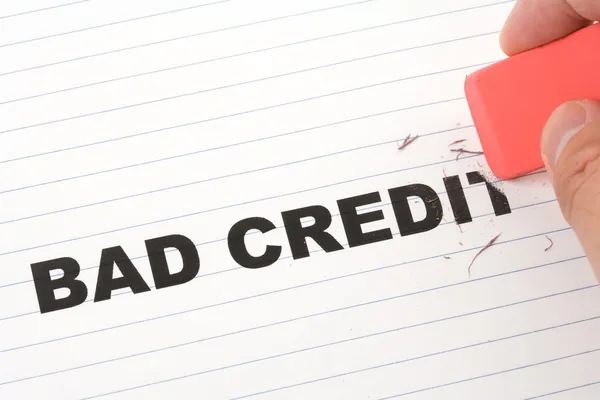So, you’ve found yourself in a bit of a financial pickle and you’re wondering if you can borrow money with bad credit. First off, let me tell you, you’re not alone. Many people face this challenge, and the good news is, yes, you can borrow money even if your credit score isn’t exactly brag-worthy. Let’s dive into the nitty-gritty of bad credit loans in Ontario and explore your options.
Contents
What is Bad Credit?
Before we get into how you can borrow money, let’s clarify what bad credit actually means. In Canada, credit scores range from 300 to 900. If your score is below 600, it’s generally considered “bad.” This can happen for various reasons: missed payments, high credit card balances, too many credit inquiries, or even a lack of credit history. It might seem like the end of the road, but it’s not!
Why Does Bad Credit Happen?
Understanding why your credit score is low can help you take steps to improve it. Here are some common reasons:
- Late or Missed Payments – Consistently missing payments on credit cards, loans, or other bills can significantly lower your score.
- High Credit Utilization – Using too much of your available credit can signal that you’re over-relying on credit.
- Too Many Credit Inquiries – Applying for several credit accounts in a short time can make you look desperate for credit.
- Defaulting on Loans – Failing to pay back loans as agreed will severely damage your score.
- Bankruptcy – This is a major red flag for lenders and can take years to recover from.
How Does Bad Credit Affect Your Borrowing Ability?
Bad credit doesn’t mean you’re out of luck, but it does mean you might face some challenges. Lenders use your credit score to determine how risky it is to lend you money. If your score is low, they may offer you loans with higher interest rates, lower amounts, or require collateral. Some lenders might turn you down altogether. But don’t worry—there are still options out there for you.
Types of Loans for Bad Credit
Here’s the exciting part: there are several types of loans specifically designed for people with bad credit. Let’s explore them:
1. Secured Loans
Secured loans require you to put up some form of collateral, like your car or home. Because the lender has something to fall back on if you can’t repay the loan, they’re more likely to approve you. The interest rates are usually lower than unsecured loans, making this a good option if you have valuable assets.
2. Unsecured Personal Loans
These loans don’t require collateral, but they come with higher interest rates to compensate for the risk the lender is taking. Unsecured personal loans can be a good choice if you don’t have assets to use as collateral. However, be prepared for higher monthly payments due to the interest rates.
3. Payday Loans
Payday loans are short-term loans that you repay on your next payday. They’re relatively easy to get, even with bad credit, but they come with extremely high-interest rates and fees. Use them only as a last resort and be sure you can repay them quickly to avoid falling into a debt trap.
4. Credit Union Loans
Credit unions are member-owned financial institutions that often offer more flexible lending criteria and better rates than traditional banks. If you’re a member of a credit union, it’s worth checking if they offer personal loans for bad credit.
5. Online Lenders
The internet is full of lenders willing to work with people who have bad credit. These online lenders can be more flexible than traditional banks and often have faster approval processes. However, be cautious and do your research to avoid scams.
Tips for Borrowing with Bad Credit
Borrowing money with bad credit can be a bit tricky, but here are some tips to help you navigate the process:
1. Check Your Credit Report
Before applying for a loan, get a copy of your credit report and check for errors. Sometimes, mistakes can lower your score, and fixing them can give your credit a quick boost.
2. Compare Lenders
Not all lenders are created equal. Shop around and compare terms from different lenders to find the best deal. Look at the interest rates, fees, and repayment terms.
3. Consider a Co-Signer
If you have a friend or family member with good credit willing to co-sign your loan, it can improve your chances of approval and get you better terms. Just remember, your co-signer is on the hook if you can’t make the payments.
4. Improve Your Credit Score
If you’re not in a hurry, take some time to improve your credit score before applying for a loan. Pay down your debts, make payments on time, and avoid applying for new credit. Even a small increase in your score can make a big difference.
Alternatives to Borrowing
Sometimes, borrowing money isn’t the best solution. Here are some alternatives to consider:
Budgeting and Saving
Review your budget and see where you can cut back on expenses. Even small savings can add up over time.
Side Hustles
Consider picking up a side job or freelance work to earn extra cash. This can help you avoid taking on new debt.
Negotiating with Creditors
If you’re struggling with existing debt, reach out to your creditors to negotiate lower payments or interest rates. Many are willing to work with you if you’re upfront about your situation.
Final Thoughts
So, can you borrow if you’ve got bad credit? Absolutely! While it might be a bit more challenging and expensive, there are plenty of options available. Whether you go for a secured loan, an unsecured personal loan, or look into alternatives like budgeting and side hustles, there’s a solution out there for you.

